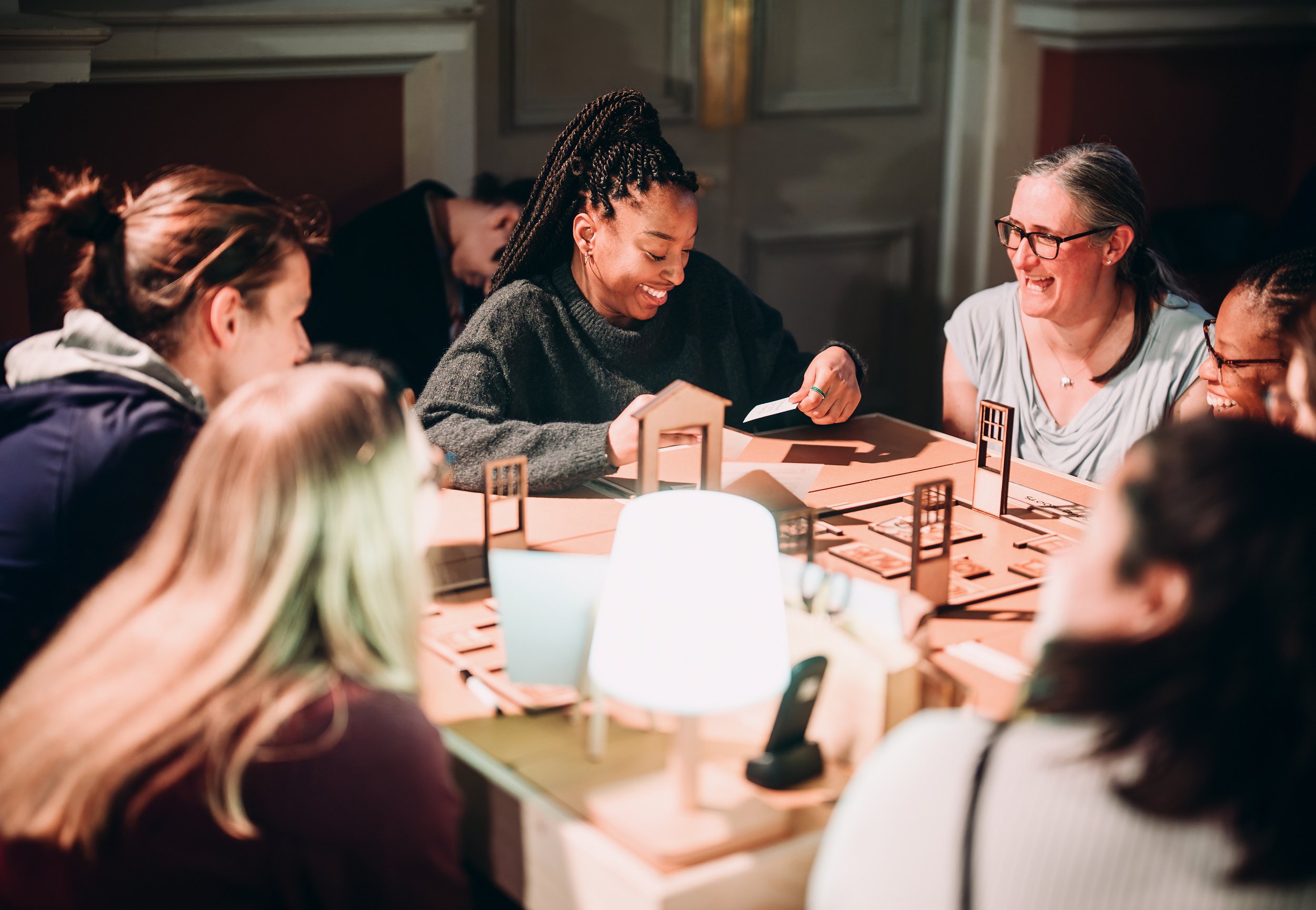1884 by Rihanna Ilube and Coney - ★★★☆☆
Image credit — Alex Brenner
1884 presents an immersive theatrical experience centred around the Berlin Conference, challenging participants to navigate the community dynamics of Wilhelm Street. For 2 hours, participants must make decisions based on information given by community leaders, and choose how they will survive as a collective in light of the various changes happening around them.
Upon entering, individuals self-select a seat forming groups of six to seven where they are required to share a space and are encouraged to think about ‘what makes a house, a home’. Written by Rhianna Illube with support from Tsitsi Mareika Chirikure, malakaï sargeant, and Chloe Mashiter, 1884 serves as an intriguing exploration of human responses to authority. Participants engage in real-time decision-making based on shared information, fostering a dynamic environment.
While immersive theatre often prompts concern regarding participant experience, 1884 adopts a nuanced approach, fostering camaraderie and personal investment within the audience. Interactions between attendees simulate community bonds, fostering friendships and collaboration.
The first part of the evening is the lengthiest part, involving a range of announcements; council tax, meetings and banishments. As the night progresses, and things become more uncertain, suspicion amongst houses brews intensely, many became paranoid and in some cases incredibly competitive.
The play's uniqueness lies in its reliance on audience participation, however, the creators manage to ensure the show maintains its essence regardless of the audience's creativity. The buildup of tension in the first half culminates in anticipation for resolution in the latter part. However, the return to familiar surroundings defies expectations, offering insight into the link between 1884 (the play) and the 1884 Berlin Conference.
Following the interval, the performers (Jyuddah James and Ewa Dina) encourage us to ponder how history is rewritten and often misinterpreted, erasing the truth of communal experiences. The play challenges perceptions of truth and community experience, mirroring distortions common in colonial histories.
The play concludes with participants reclaiming personal belongings and collectively affirming their identities, underscoring the individual's role in historical understanding. While we would have desired a more explicit historical context within the play, 1884 provides resources for further exploration, encouraging personal reflection and engagement with historical truths.
Ultimately, the play prompts audiences to contemplate their role in preserving and understanding history as it is created.
By Eniola Edusi
★★★☆☆
1884 is showing at Shoreditch Town Hall until 27th April.
